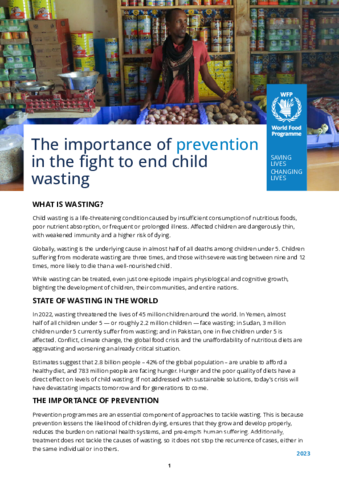
Wasting is a life-threatening condition caused by insufficient consumption of nutritious foods, frequent illness, or poor nutrient absorption, resulting in dangerously thin children with weakened immunity and a higher risk of death. Globally, wasting is the underlying cause in nearly half of all deaths among children under five. In 2022, wasting threatened the lives of 45 million children worldwide, with significant prevalence in Yemen, Sudan, and Pakistan. Factors such as climate change, conflict, and the global food crisis exacerbate this critical situation, making nutritious diets unaffordable for a large portion of the global population.
The World Food Programme (WFP), focuses on prevention by increasing the availability, access, and consumption of safe, nutritious foods. WFP's approach targets pregnant and breastfeeding women and young children, acknowledging that up to 30% of child wasting occurs in utero. Utilizing its global footprint, WFP implements context-specific solutions to provide adequate nutritional assistance to vulnerable households, often in partnership with other organizations.
Accelerating efforts to reduce child wasting is essential to achieving Sustainable Development Goal 2 (SDG 2) and ending all forms of malnutrition by 2030.
